Technology
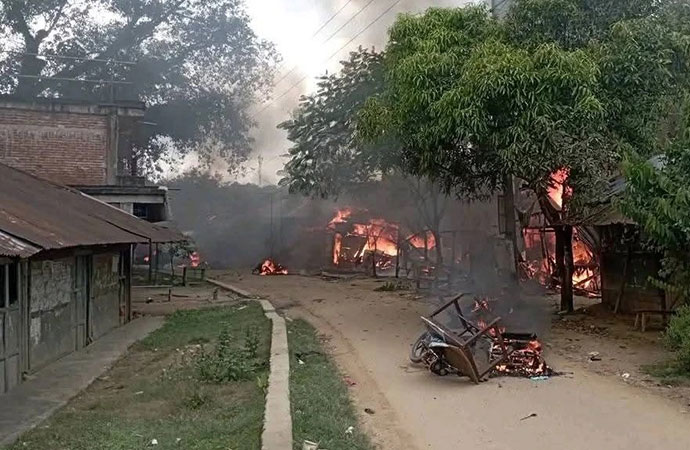
Ramesu Bazar after it was set on fire on September 28.
On Sunday, September 28, the second day of a dawn-to-dusk road blockade program called in Khagrachari district under the banner of 'Jumma Chatra-Janata' (Jumma Students and People) to protest the alleged rape of a Marma school girl and demanding the arrest of all rapists, a series of fierce attacks were carried out on the Jummas who were conducting the road blockade and in the bazar and houses in Guimara upazila of the district. In addition, the army baton-charged the Jummas, a collective term for the indigenous peoples of the Chittagong Hill Tracts, at four places in Khagrachari Sadar area.
The immediate trigger for the incident occurred on September 23, when a 12-year-old schoolgirl from the Marma indigenous community was allegedly raped by three Bengali youths while returning home from private tuition in the Singinala area of Khagrachari at approximately between 9pm to 11pm. The victim's father filed a case with the Khagrachari Sadar Police station the following day against three unidentified men. It was reported that, police, with military assistance, arrested one suspect, Shoyon Sheel, on September 24, and a court subsequently granted a five-day remand for his interrogation. Despite this arrest, protesters declared a rally and demonstration program in the district headquarters.
Tensions continued to flare over the next 3-4 days. Protests took place in the two other hill districts namely Rangamati and Bandarban, as well as Dhaka University and Shahbagh in the capital. But they were most intense in Khagrachari. On September 25, Ukyanu Marma, General Secretary of Bangladesh Marma Student Council (BMSC), Khagrachari Branch, announced a mass-gathering to be held the next day in Khagrachari through the Facebook page of Jumma Chhatra-Janata.
Hours later, at around 8:30pm, Ukyanu Marma was forcibly taken away by a team of security personnel from a shop at Madhupur Bazar, in Khagrachari District. The Kapaeeng Foundation, which advocates for indigenous rights, reported that a group of security personnel arrived in two vehicles there and took Ukyanu away. Later it was learnt that he was taken to the cantonment.
This created widespread outrage on social media. At one point, due to widespread public outrage, the security forces were forced to release him at around 10pm on the same night.
On September 27, In support of the blockade, picketing had been reported on regional highways in Ramgarh, Manikchhari, and Guimara upazilas in Khagrachari district. During the blockade, the protesters set tyres on fire and erected barriers at several key points, including the entrance to Khagrachari town in Chengi Bridge Union Parishad, Chengi Square, and Narayan Khaiya. Internal routes in Dighinala, Mahalchhari, and Panchhari were blocked using tree trunks, bricks, and burning tyres.
Clashes between protesters and Bengali settlers were reported in different places of the district. As a result, at one stage, the administration imposed Section 144 in the Khagrachari municipality and Sadar upazila, in order to keep law and order under control.
After the imposition of Section 144 at 2pm however, a group of Bengali settlers attacked Mahajan Para in Khagrachari Sadar with sharp weapons, spikes and metal bullets at around 4pm. There was a chase and counter-chase between the Bengali settlers and indigenous peoples of Mahajan Para for several hours. During this time, the Bengali settlers attacked and vandalised an ambulance, and later spread the word on social media that the indigenous Jumma peoples had attacked and vandalised it, according to the Kapaeeng Foundation's report.
Around 7pm, two more groups of Bengali settlers attacked the Ganjpara village, which is inhabited by indigenous Jumma peoples, and the area adjacent to the Young Buddhist Monastery in the Khagrachari Bazar area.
It all left the situation in the district on a powder keg as morning broke on the 28th. Reports indicate that violent clashes erupted in Guimara as the blockade was enforced or encountered resistance. According to the local sources, around 11:30am, security forces arrived and questioned protesters about continuing the blockade despite the arrest of a suspect. An altercation ensued, followed by heavy gunfire. At least three indigenous men were shot dead and brought to Khagrachari Sadar Hospital around 5:30pm. Their identities remained unknown till the next day.
In addition, at least 15 houses, 60 shops and 13 motorcycles belonging to local Jummas were reportedly set on fire and 7 shops were looted. Some army personnel were also injured in the incident.
According to several eyewitnesses who spoke to Hill Voice, a group of Jumma students and people were trying to hold their program by blocking the road in front of the food warehouse in the upazila adjacent to Ramsu Bazar in Guimara in the morning. At one point, a group of army personnel, a group of Bengali settlers, and some masked armed outsiders arrived there. At that time, the army first took the initiative to drive the blockading crowd off the road. This led to an argument between the army personnel and them. Then the army forcibly dispersed the gathering.
At around 12 noon, a chase and counter-chase began between the army along with the Bengali settlers and the Jumma student-mass. In the meantime, the Bengali settlers started setting fire to shops in Ramsu Bazar and the houses of the surrounding Jummas, burned motorcycles, and looted shops. This led to a chase and counter-chase between the two sides.
Multiple eyewitnesses told Hill Voice that at around 1pm, the army and masked miscreants opened fire on the Jumma crowd who were holding the blockade. The attack is said to have lasted till 4pm.
The three victims were identified the next day as Akhrau Marma (22), father-Hasu Marma, Mother-Krasung Marma; Village-Chenguli Para, Ward No.5, Hafchari Union, Guimara; Teiching Marma (20), father-Alakai Marma, Mother-Danuprue Marma, Village-Ramsu Bazar, Battala, Ward No.4, Hafchari Union, Guimara and Athuiprue Marma (21), father-Thuhla Aung Marma, Mother-Pratima Marma, Village-Debalchari, Chairman Para, Sindukchari Union, current address-Amatali Para, Ward No.5, Hafchari Union, Guimara.
On the same day (September 28), it was reported that soldiers of the Khagrachari Brigade suddenly and violently baton-charged the Jummas in at least four places in Khagrachari Sadar: at Swanirbhar Bazar, around 8am, and then later in the Giriful, Manigram and Kuradiachara areas.
According to the Kapaeeng Foundation, the incident underscored the extreme volatility in the Chittagong Hill Tracts, where sexual violence often acts as a flashpoint for deeper ethnic and land-related conflicts. In a statement, Transparency International Bangladesh (TIB) expressed "strong outrage and condemnation over the extensive violence and reported multiple deaths" and questioned "what crime exists in the indigenous community's legitimate demand for justice."
TIB's Executive Director Dr. Iftekharuzzaman stated that "attempts to normalize the rape of indigenous women are not new" and the failure to respond represented "indifference or complicitly towards the destructive conspiracies of vested interests".
One couldn't help but note the malign role played by actors on social media throughout the period that the tensions persisted, with much of the incitement fuelled by fake news. Section 144 was finally lifted from Khagrachari after the protesters called off their blockade on October 1. By then, the fault lines in the national fabric of the country had been exposed badly once again.






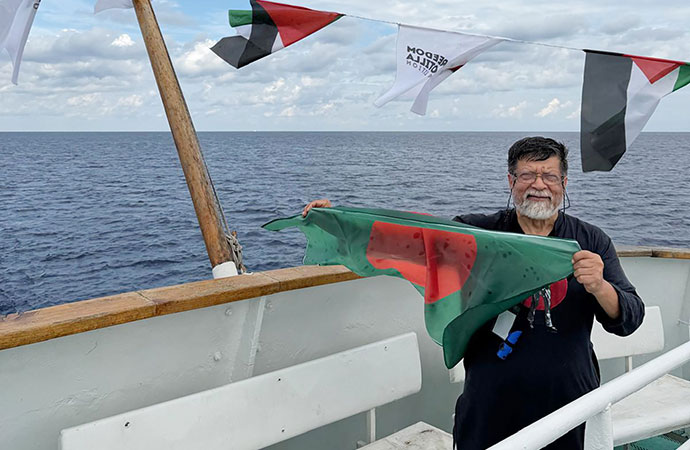

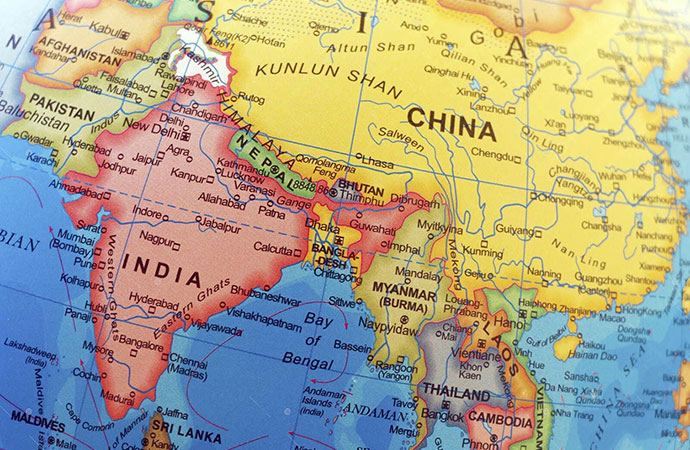
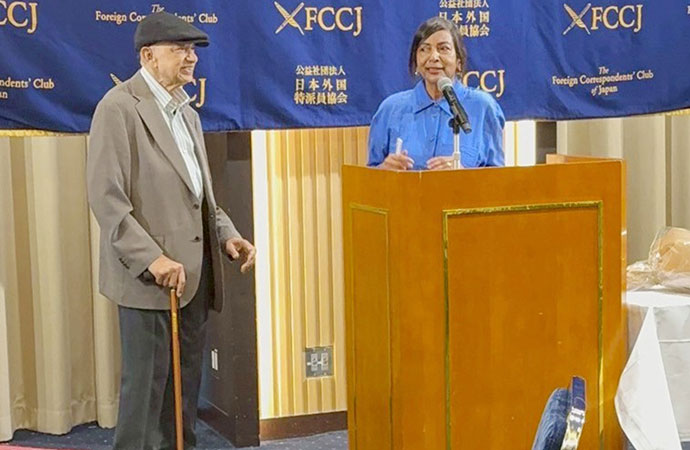
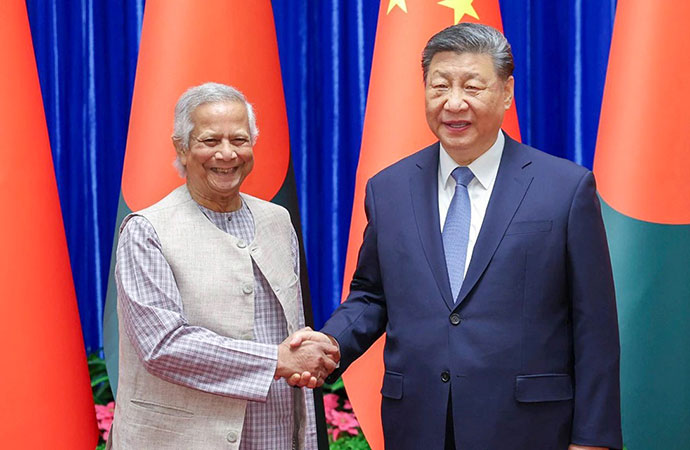


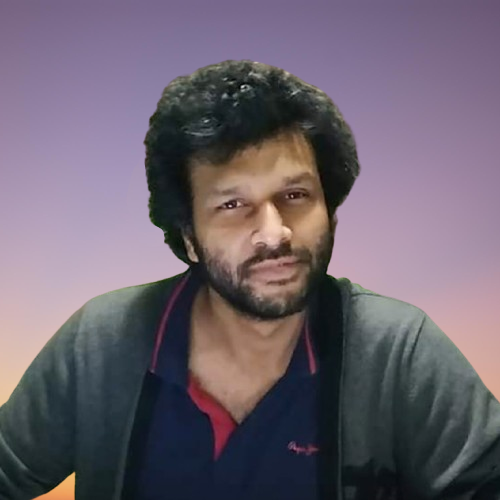











Leave a Comment
Recent Posts
Breakfast at Tiffany’s
Breakfast at Tiffany’s is an Old Hollywood film, released in 196 ...
Kalidas Karmakar’s ‘Holy War’ ...
Works of celebrated Bangladeshi masters, including Shilpacharya Zainul ...
All eyes on the Freedom Flotilla, as Shahidul Alam s ..
The disquiet in the Hills
Ocean Collective Summit 2025 Turning ‘What If’ into ..
Dhaka, Beijing should ‘deepen strategic partnership’ ..